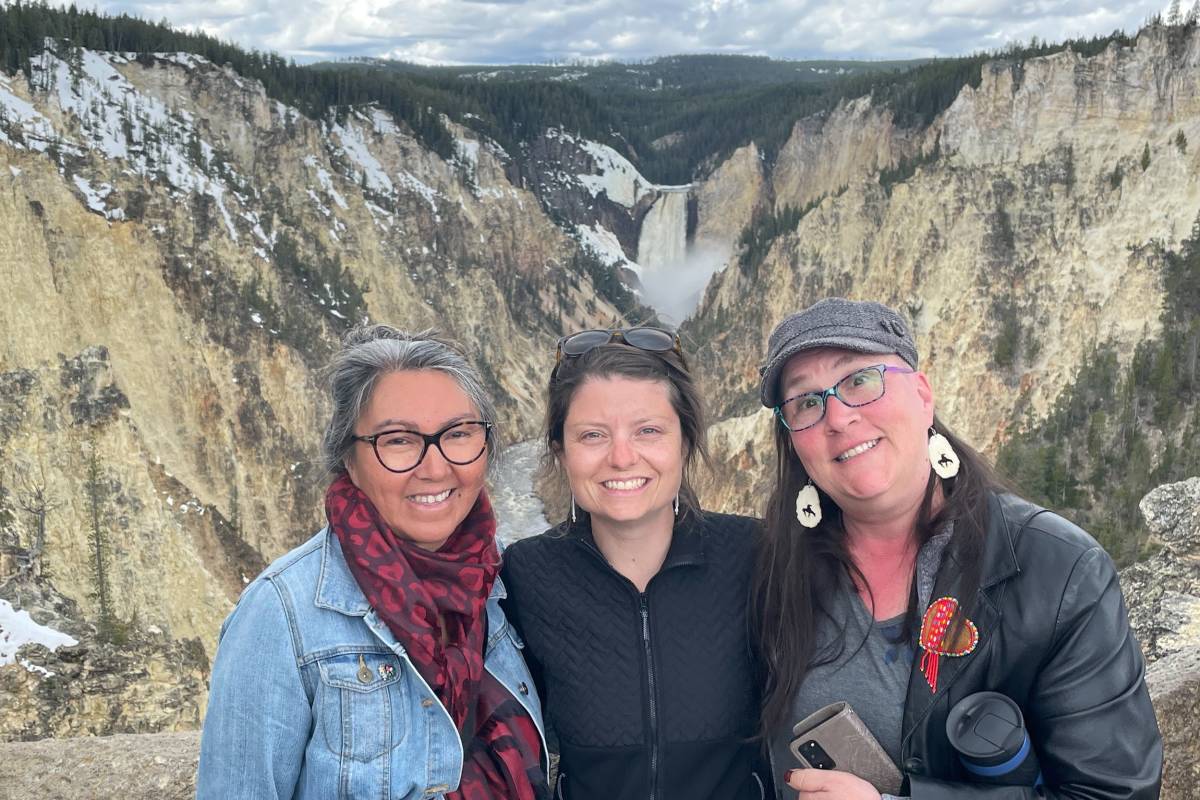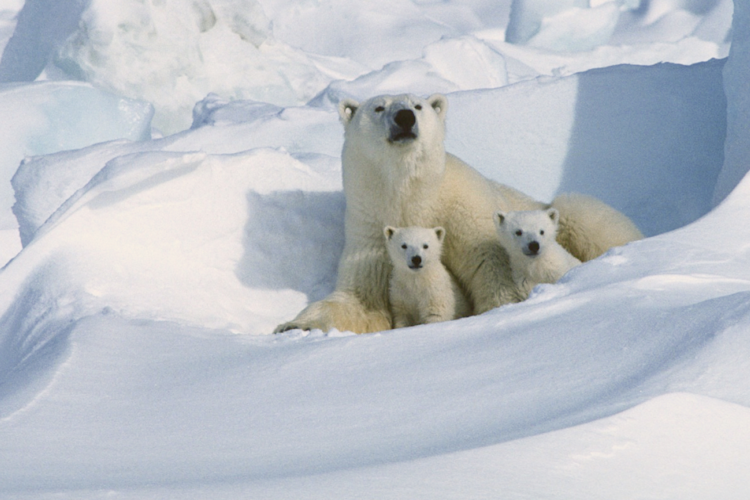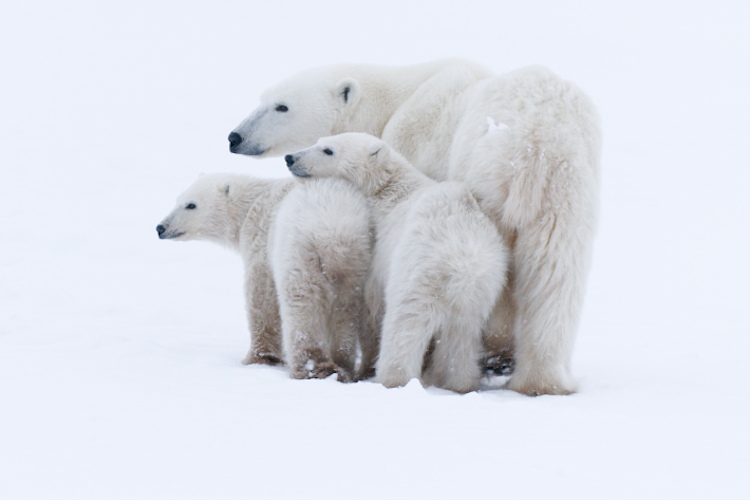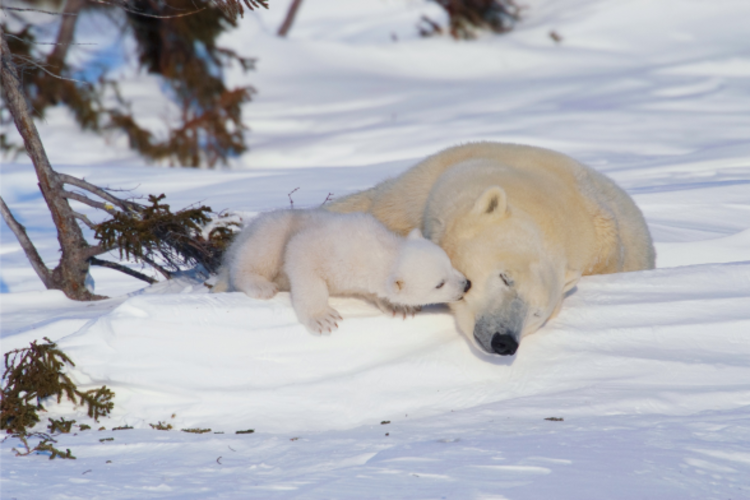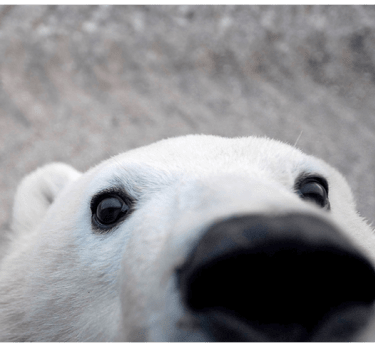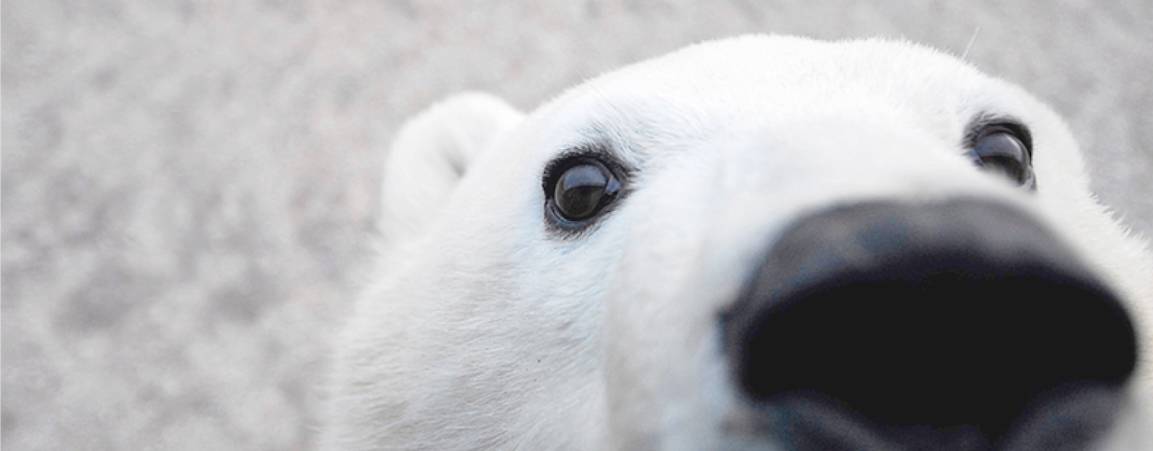We couldn’t be more honored to welcome Georgina Berg and Katie de Muelles to the Polar Bears International Advisory Board. Katie and Georgina are members of the Indigenous Knowledge Keepers in Churchill, Manitoba. I’ve had the pleasure of getting to know them through a research project we’re producing together. The study uses storytelling to explore Indigenous Knowledge of human-polar bear coexistence in the Western Hudson Bay region. Through the process, we’ve had many cups of coffee together and have shared stories and experiences in the community and on the Land. I’m deeply grateful to them for sharing their knowledge and expertise with me, and, now, in a larger capacity, as board advisors to Polar Bears International.
Q: Both of you are Indigenous Knowledge Keepers in the community of Churchill, Manitoba, Canada. Can you share what being a Knowledge Keeper means to you?
Georgina: As an Indigenous Knowledge Keeper in our community, I am called upon often for a variety of things: Cree blessings at community feasts, sharing our local history through presentations (usually to our many tourists), and planning important awareness events to honor and celebrate Indigenous people—such as our recent community event on June 21st, which is National Indigenous People’s Day in Canada.
I am very proud to be a member of the Indigenous Knowledge Keepers, as we are a visual representation for the children of our community, and we share our history through the events we host.
Katie: I have always been committed to sharing my Métis culture with the community. I feel I’ve played a valuable role by helping, volunteering, and sharing my stories of Métis history with many different groups and organizations. Whenever and wherever we can, I feel that sharing our stories with others—and sharing our knowledge of the original four nations that call Churchill home—is important. I have been a Knowledge Keeper for years, but feel our presence and stories are more welcome now than ever before. I will continue to share my culture! It is my Ancestors who drive me to continue to share. I love what I do.
Q: How did you become involved with Polar Bears International?
Georgina: I became involved with Polar Bears International when Kt Miller asked me to help her with a research project concerning polar bears and how our community lives and coexists with them. I liked the fact that the project was done by storytelling with groups of people, which is the Indigenous way, instead of the traditional research method of questions and answers. I loved being a part of it and it turned out great! Then I was introduced to Krista Wright, Polar Bears International’s executive director, who said that they were looking for board advisors who could provide an Indigenous perspective. I liked the organization, its goals, and the people, so I agreed to join.
Katie: Well, Polar Bears International and I have a long history, as I was great friends with the founder, Dan Guravich. He did great work to save polar bears—an animal that I have always felt a deep connection to, one that spans a lifetime. Some years after Dan passed away, I met Krista Wright and my connection with the organization was renewed and has slowly grown into an unbreakable bond. It started after Polar Bears International House was built, and PBI began offering Indigenous and other organizations free access to the space and helping whenever possible. Then Georgina and I started to share our knowledge on polar bears and our thoughts on current culture and climate change with the team. Sharing is a powerful tool! More recently, we started to discuss holding youth summer camps in Churchill, and l am so on board when it comes to Land-based programs for local youth. After all, I was a teen myself years ago, teaching kids across the river. The idea of the camps is a light for me, it gives me hope. I look forward to reviving what youth used to learn on the Land. I can’t wait to renew that again and get the summer camps started!
